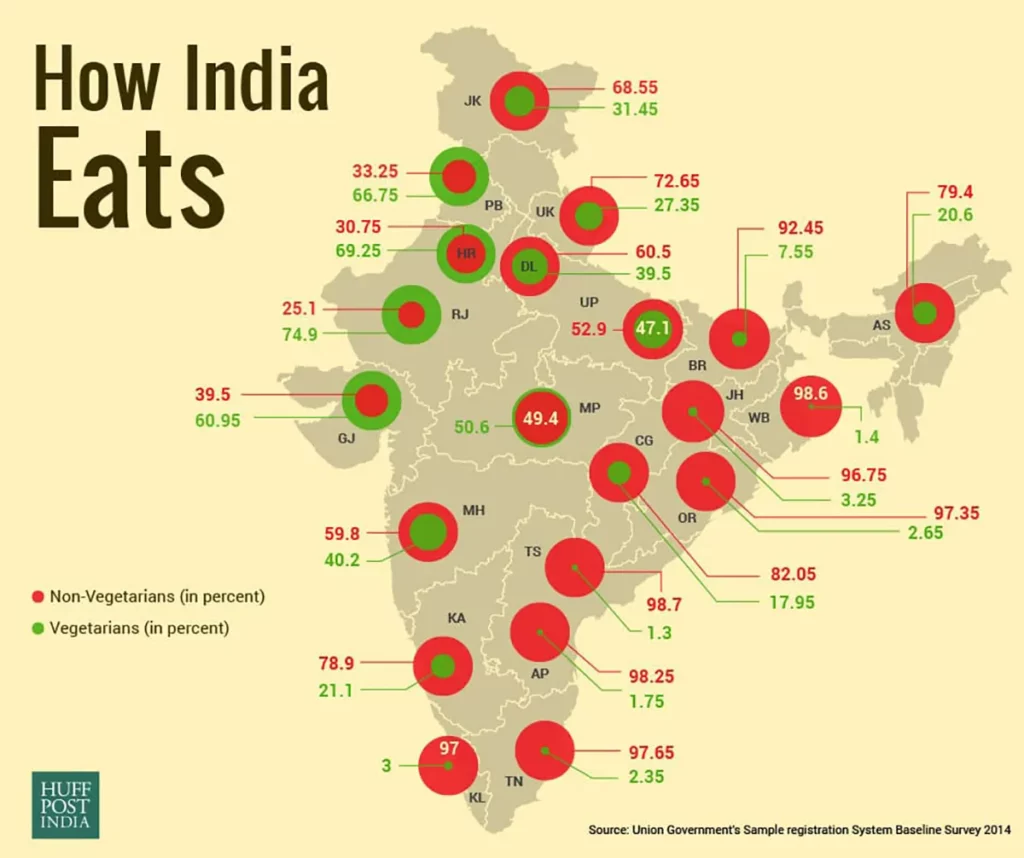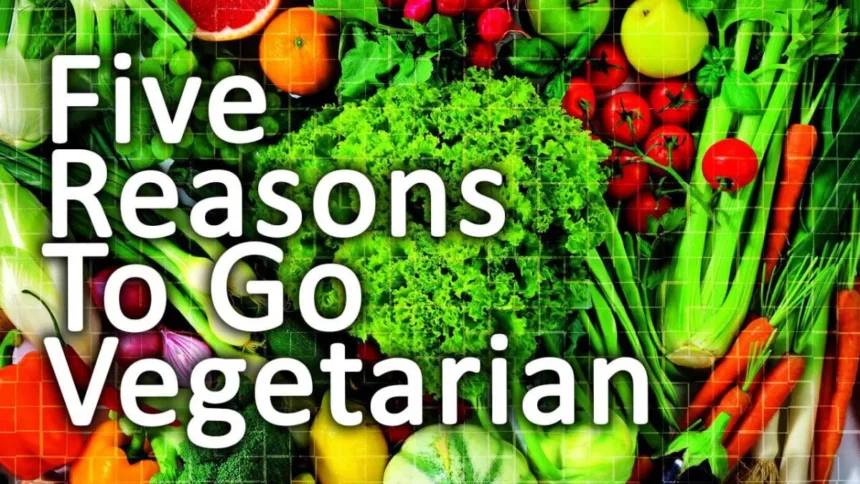As many of you know, QNet is a vegetarian company. What exactly does that mean?
QNet will not promote any products are services that have contain animal products or have been tested on animals. You can be assured all our products are cruelty-free and sourced ethically. QNet also has a clearly stated official policy of serving only vegetarian meals at all events. This means, if you are invited to a meeting or a training program hosted by QNet anywhere in the world, you can look forward to being served delicious, healthy vegetarian meals!
The underlying principle for this is a very simple philosophy propagated by our founders – Do No Harm.
It is often assumed that vegetarianism is the norm in India, encouraged or imposed by ideologies of religion and culture. However, a nationwide survey, conducted by the Office of Registrar General & Census Commissioner, reveals otherwise. It shows that less than 30% of Indians over the age of 15 are actually vegetarian.

Interestingly, in recent years, a growing trend towards vegetarianism has risen among young people due to an increasing awareness of health, the environment, and compassion for animals.
Why are people drawn to vegetarianism? Some just want to live longer, healthier lives. Others have made the switch to preserve Earth’s natural resources or from a love of animals and an ethical opposition to eating them.
Thanks to an abundance of scientific research that demonstrates the health and environmental benefits of a plant-based diet, many healthcare professionals recommend that we consume most of our calories from grain products, vegetables and fruits. An estimated 70 percent of all diseases, including one-third of all cancers, are related to diet. A vegetarian diet reduces the risk for chronic degenerative diseases such as obesity, coronary artery disease, high blood pressure, diabetes and certain types of cancer including colon, breast, prostate, stomach, lung and esophageal cancer.
We’ll give you a few reasons to consider the benefits of going vegetarian.
1. You’ll keep many diseases at bay
A vegetarian diet is inherently healthful because vegetarians consume less animal fat and cholesterol. Vegetarians tend to consume more fiber and more antioxidant-rich produce. It’s important to note that the style of cooking plays an important role on the health benefits of a vegetarian diet. If you cut out the meat, and replace it with oily, deep fried and fatty cooking, you not only kill the nutrition of our plant-based food, it won’t make any difference to your health.
A low-fat vegetarian diet is the single most effective way to stop the progression of coronary artery disease or prevent it entirely.
2. You’ll have more energy.
Good nutrition generates more usable energy——energy to keep pace with the kids, energy to focus on your business, energy to travel and see the world with your family. Too much fat in your bloodstream means that arteries won’’t open properly and that your muscles won’’t get enough oxygen.
The result? You feel zapped. Balanced vegetarian diets are naturally free of cholesterol-laden, artery-clogging animal products that physically slow us down and keep us hitting the snooze button morning after morning. And because whole grains, legumes, fruits and vegetables are so high in complex carbohydrates, they supply the body with plenty of energizing fuel.
Of course, you also need to change your sedentary lifestyle along with your diet in order to reap all the benefits of your vegetarian diet.
3. You’ll help Reduce Environmental Pollution.
Some people become vegetarians after realizing the devastation that the meat industry is having on the environment. Raising animals for food requires massive amounts of land, food, energy, and water and causes immense animal suffering. Some of the environmental effects that have been associated with meat production are pollution through fossil fuel usage, animal methane, effluent waste, and water and land consumption.
According to the US Environmental Protection Agency (EPA), chemical and animal waste runoff from factory farms is responsible for more than 173,000 miles of polluted rivers and streams. A staggering 51 percent or more of global greenhouse-gas emissions are caused by animal agriculture, according to a report published by the Worldwatch Institute. According to the United Nations, a global shift toward a vegan diet is necessary to combat the worst effects of climate change.
4. Your dinner plate will be full of colour.
Disease-fighting phytochemicals give fruits and vegetables their rich, varied hues. They come in two main classes: carotenoids and anthocyanins. All rich yellow and orange fruits and vegetables such as carrots, oranges, sweet potatoes, mangoes, pumpkins, and corn owe their color to carotenoids.
Leafy green vegetables also are rich in carotenoids but get their green color from chlorophyll. Red, blue and purple fruits and vegetables like plums, cherries, and red capsicum contain anthocyanins. Cooking by color is a good way to ensure you are eating a variety of naturally occurring substances that boost immunity and prevent a range of illnesses.
5. You’ll Save Animals
Many vegetarians give up meat because of their concern for animals. Ten billion animals are slaughtered for human consumption each year. And, unlike the farms of yesteryear where animals roamed freely, today most animals are factory farmed. This means they are crammed into cages where they can barely move and fed a diet pumped with hormones, pesticides, and antibiotics. Research shows that factory farms’ widespread use of antibiotics can lead to antibiotic-resistant bacteria that threaten human health.
These animals spend their entire lives in crates or stalls so small that they can’t even turn around. The factory farming industry strives to maximise output while minimising costs—always at the animals’ expense. You can help make a difference in ending their suffering, by choosing to go vegetarian.








